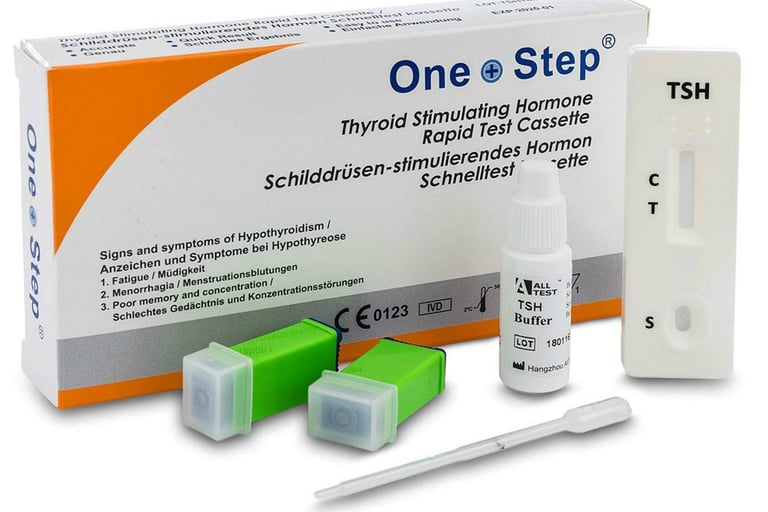Hypothyroidism
8/24/20232 min read
Hypothyroidism: symptoms, diagnosis and treatment
Hypothyroidism is a condition in which the thyroid gland does not produce enough thyroid hormones.
Symptoms of Hypothyroidism include:
Fatigue
Weight gain
Dry skin
Constipation
Depression
Hair loss
Cold intolerance
Heavy menstrual bleeding
Weakness of muscles
Slow heartbeat
If you experience any of these symptoms, you should see a doctor immediately. Hypothyroidism can be easily treated with medication, but if left untreated, it can lead to serious health problems.
Diagnosis
Hypothyroidism is diagnosed by a blood test that measures the level of thyroid-stimulating hormone (TSH) in the blood. TSH is a hormone produced by the pituitary gland that tells the thyroid gland how much thyroid hormone to produce. A high TSH level indicates hypothyroidism.
In some cases, your doctor may also order tests to measure levels of free T4 and total T4. Free T4 is the amount of thyroid hormone that is not bound to proteins in the blood. Total T4 is the total amount of thyroid hormone in the blood, both free and bound.
Home Diagnostic Tests
There are a number of home diagnostic tests available for hypothyroidism. These tests measure TSH levels in the blood using a finger prick blood sample. The results of these tests are not as accurate as blood tests done in a doctor's office, but they can be a helpful way to screen for hypothyroidism.
If you think you may have hypothyroidism, talk to your doctor about whether or not a home diagnostic test is right for you.
How to test thyroid at home
We offer home thyroid tests to detect TSH levels which can indicate hypothyroidism
Our home diagnostic tests are easy to use and accurate. They can help you get the information you need to make informed decisions about your health. Please contact us today to learn more about our home diagnostic tests for hypothyroidism.
Treatment
The treatment for hypothyroidism is a lifetime of hormone replacement therapy. This involves taking a synthetic thyroid hormone such as levothyroxine every day. Levothyroxine is available in different forms, including tablets, capsules and liquid.
The dosage of levothyroxine needs to be adjusted over time to maintain optimal thyroid hormone levels. Your doctor will monitor your levels through blood tests and adjust your dosage as needed.
Subscribe to our newsletter
SeraDiag, 128 City Road, London, EC1V 2NX


